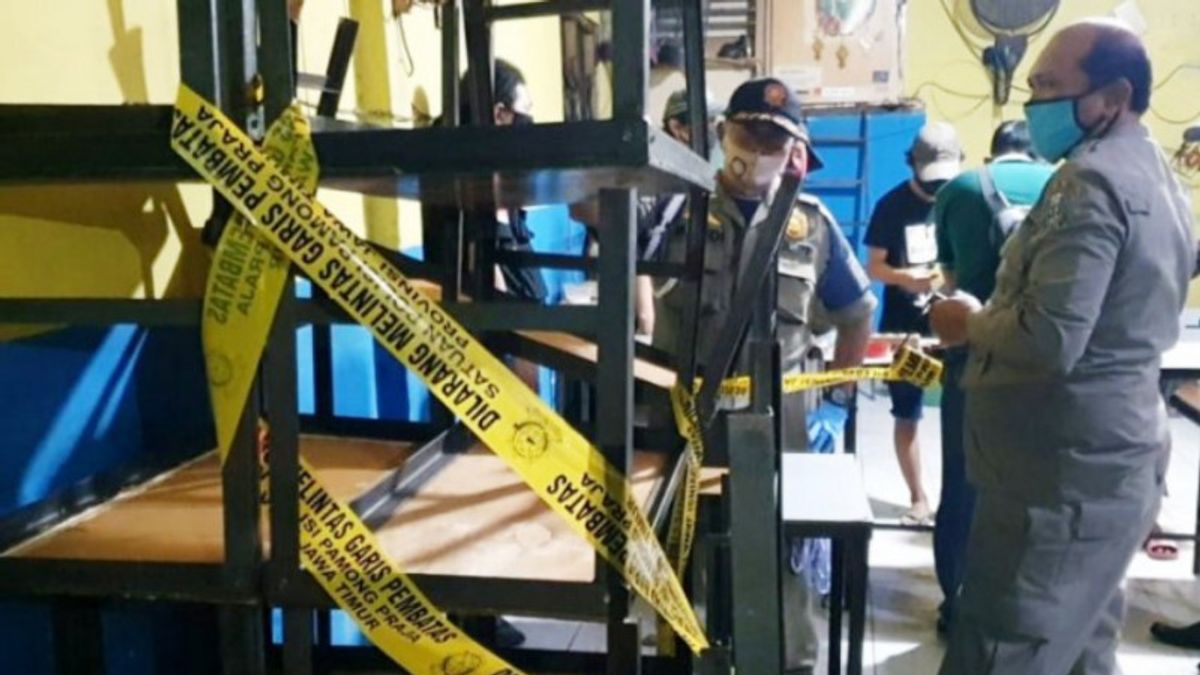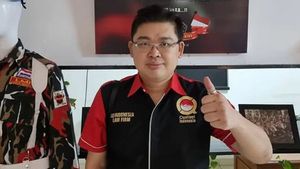JAKARTA - Deputy Head of the DKI Satpol PP Sahat Parulian admitted that his party was still confused about distinguishing essential business sectors that were allowed to operate during an emergency and non-essential PPKM which had to be closed.
In fact, the Minister of Home Affairs (Mendagri) Tito Karnavian has issued a Domestic Instruction Number 18 of 2021 which clarifies which companies are essential and critical.
However, Sahat admitted that his staff still found obstacles. They are hesitant in determining whether a company is included in the essential, non-essential, or critical sector during implementation in the field.
"This is indeed a bit difficult in implementation in the field. If we are instructed by the Minister of Home Affairs, there are indeed explanations for essential and critical sectors, but they are still too broad, too macro. Meanwhile, we at the implementing level in the field (need) more detail ," said Sahat in a virtual discussion, Monday, July 19.
Therefore, Sahat admitted that he had conveyed to the Ministry of Home Affairs to revise the Ministry of Home Affairs and further clarify which types of businesses are categorized as essential, non-essential, and critical.
So, if there are clearer guidelines, this can minimize debate between officers in the field and make it easier for Satpol PP ranks to take action for violators of Emergency PPKM.
"For example, are car repair shops and motorcycle repairs essential or not? Well, in the field, it turns out that there are a lot of debates. We don't want to have different views from our friends in the city in taking action," said Sahat.
"Then, what is called a lawyer's office, law office, is it essential or non-essential? Yesterday we also conveyed that this should also be included in the revision of the Ministry of Home Affairs," he continued.
Previously, Minister of Home Affairs Tito issued Inmendagri Number 18 of 2021 as a refinement of the Emergency PPKM rules.
This rule is the second amendment to Inmendagri Number 15 of 2021 concerning the COVID-19 Emergency PPKM in the Java and Bali Regions.
Improvements in Inmendagri Number 18 of 2021, which are related to the arrangements in the third dictum, Letter c, numbers 1 and 3 into three sectors, essential, critical, and construction.
In the essential sector, it is explained that the financial and banking sectors that may operate only include insurance, banks, pawnshops, pension funds, and financial institutions (which are oriented to physical services with customers).
This sector can operate with a maximum capacity of 50 percent of staff for locations related to office administration services to support services, while for office administration services to support operations a maximum of 25 percent is allowed.
With respect to other essential sectors, the capital market (which is oriented towards physical services with customers and the proper operation of the capital market), information and communication technology including cellular operators, data centers can operate with a maximum capacity of 50 percent of staff.
Likewise, the internet, postal and media sectors related to the dissemination of information to the public and non-quarantine handling hotels.
Meanwhile, for export-oriented industry-based essential sectors, the company must show proof of sample documents for export goods notification (PEB) for the last 12 months or other documents showing export plans and must have an operational and industrial activity mobility permit (IOMKI).
The sector can operate with a maximum of 50 percent of staff only in production facilities/factories, while for office administration services to support operations, only 10 percent is allowed.
The second sector, the critical sector covering health, security, and public order can operate 100 percent of the staff without any exceptions.
For other critical sectors, namely the handling of energy disasters, logistics, transportation, and distribution, especially for the community's basic needs, food and beverages, and their supports, 100 percent of the maximum staff can operate only in production facilities, construction, and services to the community.
This includes livestock/pets, fertilizers and petrochemicals, cement, and building materials, national vital objects, national strategic projects, construction (public infrastructure), and basic utilities (electricity, water, and waste management).
For office administration services to support operations, a maximum of 25 percent of staff is applied.
The English, Chinese, Japanese, Arabic, and French versions are automatically generated by the AI. So there may still be inaccuracies in translating, please always see Indonesian as our main language. (system supported by DigitalSiber.id)













